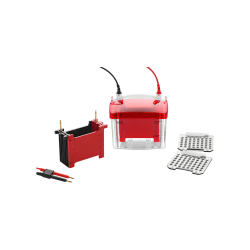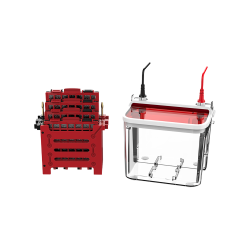
Fast Semi-dry Blot System TRSB-601
Fast Semi-dry Blot System TRSB-601 is equipped with heat dissipation to effectively dissipate the heat generated during the transfer, preventing the experiment from failing due to overheating. It has a temperature range of 5 °C to 40 °C and a relative moisture content of 20% to 80%. To ensure uniformity of pressure and field strength, the electrode is designed with a buckle locking mode and a plate electrode design. It works with standard laboratory reagents and consumables.

